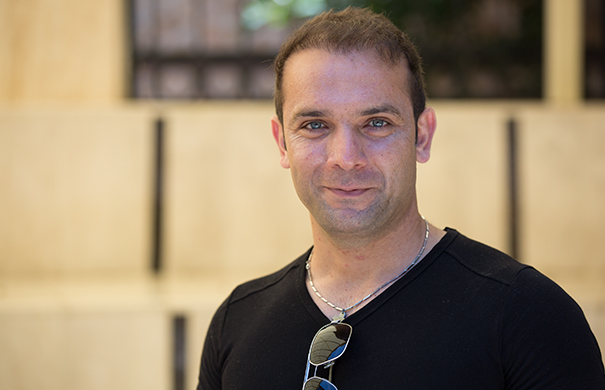
Ministry Updates
Persecuted for a Book He Didn’t Believe
December 21, 2017
by admin

Hamid used to travel the world searching for truth, but he says it was like “you lose something, and you don’t know what it is.”
That changed when he moved to Turkey and visited the St. Paul Cultural Center — a TEAM ministry made possible by generous people like you! When Hamid showed up with questions, a staff pastor shared the Gospel. Now Hamid is a growing Christian who works with and is discipled by TEAM missionaries.
Looking back, Hamid has no doubt that God brought him there.
Hamid Searched the World for Answers
Life in Iran wasn’t hard for Hamid. As a young man, he lived on his own and earned enough to visit another country every year or so.
“I had everything. … But I didn’t have something in my spirit,” Hamid says.
Despite his comfortable life, Hamid was often stressed and fought with his family. But there was something else nagging him, too.
When he was 17, Hamid saw a picture of Jesus with children, “and many times, this picture came to my mind because it was very kind, and it was, I don’t know. The feeling is different, you know?”
As a Muslim, Hamid found it impossible to get a Bible in Iran. So, he started visiting other countries, searching for Christians.
But Hamid’s government keeps close tabs on citizens, even when they visit other countries. On a trip to Armenia, someone gave Hamid a New Testament. Soon after, his parents called to say authorities were asking questions about him.
Illegal Bible Forced Him to Flee
In Iran, you can be arrested for owning a Bible — whether you believe its words or not. Hamid had no choice but to seek refuge in another country. That’s how God led him to Turkey.
Hamid registered as a refugee, and the U.N. asked him to pick a city to live in. He knew nothing about Turkey, so he blindly picked a place.
Little did he know, TEAM missionaries were working in the nearby city of Antalya. There was already a church waiting for him.
That’s a huge deal because Turkey is 98 percent Muslim, and the government has blocked many church buildings. But through TEAM partners like you, missionaries opened a Christian cultural center, giving them a legal place to meet.
During the week, people come for classes, lunch at the café or to ask the staff about Christianity. On Sunday, the center hosts church services in Turkish, English and Farsi — Hamid’s language.
When Hamid asked people about churches in Antalya, they pointed him to the center, where 100 Iranians attend church.

The St. Paul Cultural Center is a safe place for local refugees that not only provides jobs and community, but it is also an open door for new Christians to seek answers. Photo by TEAM
Hamid Found Freedom in Christ
Hamid went to the center and finally found his answers. Then he gave his life to Christ! Now, Hamid works as a security guard at the center, where he gets to be with fellow believers and help point others to his Savior.
“I am so thankful to have heard the Gospel and to have been saved that I want others to have the chance as well,” Hamid says.
He’s had the opportunity to travel again, but his restless soul has found peace. And as he shares Jesus with others, he seeks to grow closer to God every day.
“That is very important for me, nothing more,” Hamid says. “I mean, if you have Father, you have everything.”
Right now, someone like Hamid is searching for answers — waiting for a friend to point them to Jesus Christ. With a gift to TEAM, you can be that friend. Will you help someone in need today?
Related articles



